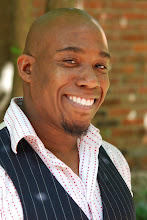One of the most fascinating components about opera is that no matter the language, the composer or the story, all of the emotional content contained within comes at a heightened state. If the character is joyful, not only does the text reflect it, but the music finds a way to tell the audience that the character is happy. In truth, they are filled with intense joy or could literally die from bliss. In turn, if a character is sad, then that sadness is guaranteed to be so deep that it can bring the audience to the brink of tears. If two characters are in love, then not only will they sing about it for ten minutes (or more), but it is the epitome of the greatest love ever.
Being an opera singer we must not only sing well, but connect with each character’s emotional state. In the last few months I have sung a Barber who loves the life he leads of uniting lovers and being the general factotum, a Toreador who falls for a gypsy, but also loves himself quite a bit and currently a starving artist painter who has a fantastic, yet highly dysfunctional relationship with his on-again, off-again girlfriend. I have always found comedy much easier to play because I am by nature a silly person and that tends to be the side that I am most comfortable showing to people. I find playing dramatic situations much more difficult because it is exposing one’s self in a vulnerable way. Comedy is about beats and build-up, contrasts and not being afraid to look foolish. In a way, I can immerse myself in the character while at the same time bring myself to the surface. Drama is the same, but showing that side of myself is still a challenge. However, the great thing is that this season is filled with roles that dare me to go to those very real, bare places and really connect.
During one our final rehearsals for La Bohème, we were going through Act III, the highly charged emotional scene where Mimi and Rodolfo decide to reunite even though she has just discovered she is dying. In the same scene, Musetta and Marcello are having a knockdown, drag-out fight and decide to go their separate ways. It is an incredible scene filled with grand passion and grand hostility. The soprano singing Mimi was in the middle of the scene and had to stop as she had “crossed over” into the place where it became quite real and she started crying. An actor reciting lines can keep going, but it is rare that a singer can keep performing when deep emotions and tears begin to surface. We stopped and took a break, but when we started the scene again, I heard a difference in her voice. Something had opened up and her sound became fuller, richer, and more beautiful. What followed then was something I wish I could find every single time I perform. The scene between Musetta and Marcello connected to a level of intensity we had never had. (Clarification: This is not to say that we didn’t have chemistry, but this was deeper and it was almost dangerous and exciting.) It gave us a chance to see how far we could go. Flirting with such emotional rawness felt exhilarating and I knew in that moment that I wanted to go to this place over and over again.
Drama, for me, means delving into emotional truths that help me understand a man who is incredibly vain, has dealt with betrayal in a relationship and who has felt the loss of someone close to them. As someone who tries to maintain a great outlook on life and be happy in every moment, it has proven to be a fascinating journey into past pain, feelings and memories to cross the bridge from myself and meet the slew of operatic men I am to portray. Many are dealing with issues ranging from the loss of love, a fugitive on the run or one who must deliver soul-crushing news. Some would say I am have that touch of the dramatic in me so it should be easy to access, but I know that to do real justice to the dramatic side, one must burrow through the gunk of our pasts and not only feel comfortable enough to show it to an audience, but do it all the while singing at a high emotional state.
Audiences of the past want the greatest possible vocal performance, while new audiences demand truth and realism. As a 21st century opera singer, I am faced with trying to sing at the highest technical level possible while also giving the audience 100% of the expressive nature of the character. Each singer must remain in two moments (vocal and dramatic) that when married, proves the extraordinary power of opera. Back to the practice room!
Peace,
Eric
Thursday, October 18, 2012
Subscribe to:
Post Comments (Atom)

No comments:
Post a Comment